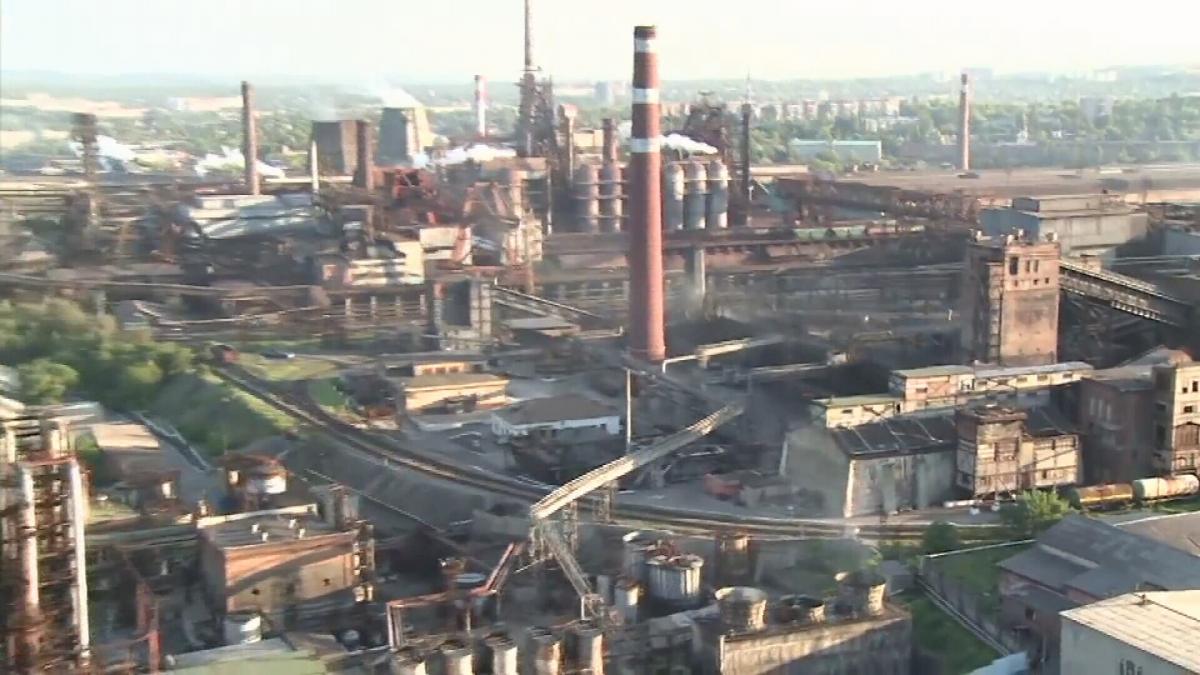
Fear and torture: Story of most terrifying prison in occupied Donbas
Disgust, torture, and death… It's better to die than to further endure abuse… This is how five former prisoners of "Isolation," a former Donetsk art hub that the occupation forces turned into a secret torture chamber, speak of their time they did there. They all count on fair punishment for their offenders. However, will those human monsters from Isolation eventually be prosecuted?
Ukrainian creative community back in 2010 decided to turn an abandoned factory on the outskirts of Donetsk into a contemporary art Mecca. They sought to prove to the rest of Ukraine and beyond that the industrial Donbas isn't all about coal mines and factories. It's also about unique culture and identity. But with the onset of war, Isolation was seized by Russian proxy forces. At first, they set up a military base there before making the site a concentration camp for dissenters of the "Russian World."
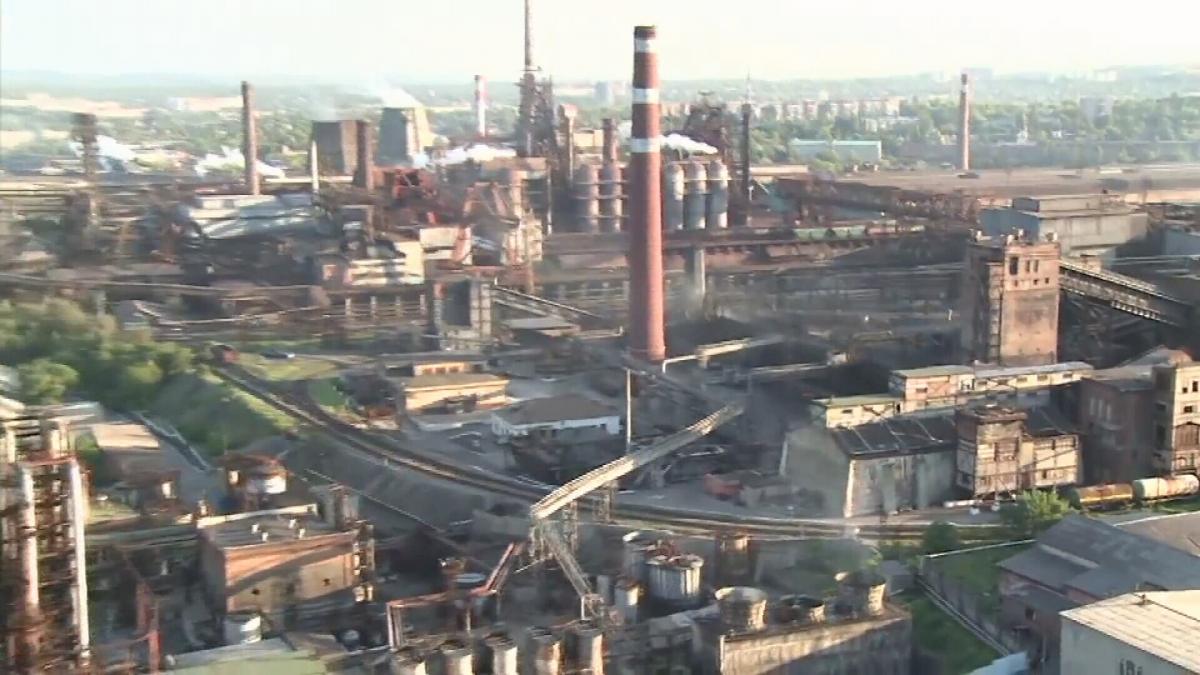
An exclusive video obtained by TSN.Tyzhden shows how today's Isolation looks like today. In the former offices of the administrative building, prison cells have been set up. In the basement there are torture chambers. A table is seen in the video where prisoners are tortured. There's also a bag by the wall with the major torture tool in it, colloquially called "tapik."
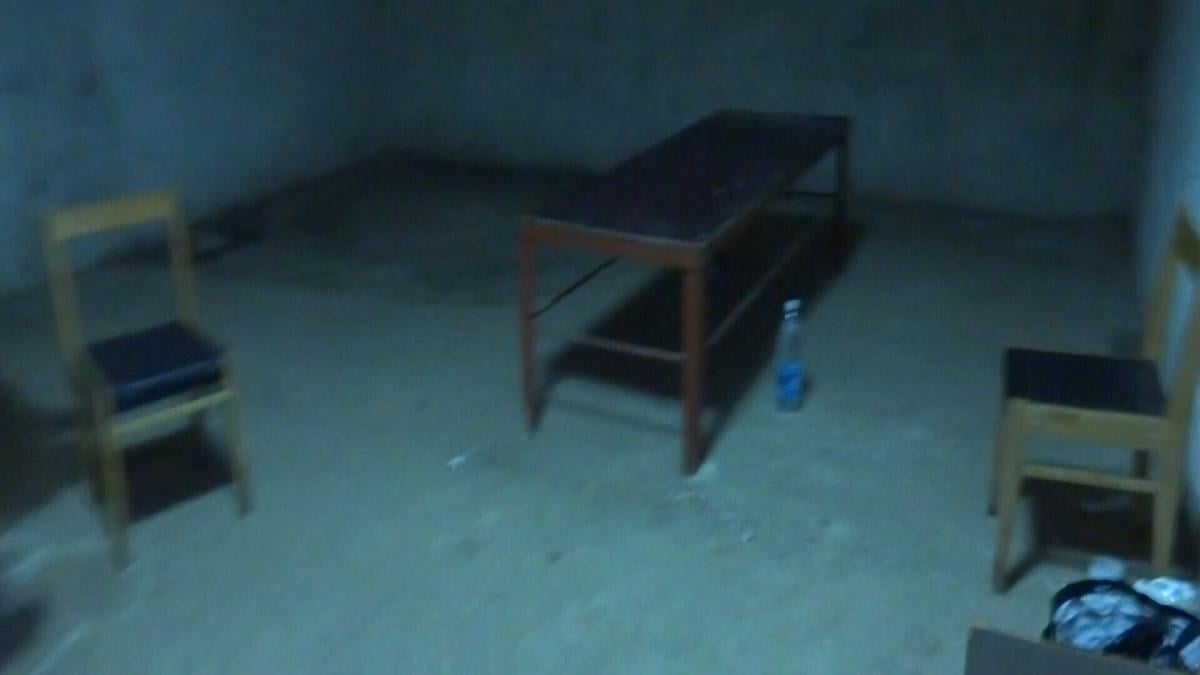
Maksym Teorenter is a resident of Donetsk region's Lyman, a local businessman and professional football player, also a frequent wrestling champion. He didn't want to put up with the occupation of his native Donbas. In 2016, he was working for the Ukrainian intelligence. For this he was detained and thrown into this hell hole. In Isolation, he was tortured into confessing on video of having been tasked by the SBU security service to assassinate the so-called "DPR leader", Oleksandr Zakharchenko. That video can still be found on the internet...
"I recorded the confession following six to eight hours of torture," Teorenter tells TSN.Tyzhden. "It's called 'tapik' – a military field phone. When they connect wires to someone, the victim feels excruciating pain. All tendons and ligaments are in shock. You scream as you hear your teeth cracking, you feel your nose bleeding. Meanwhile, they hit your legs, the back of your head, your whole body with sticks."
This "procedure" lasted for days. Each such torture would last for hours.
"I would just scream. Do you know how people can scream? They roar like a dying beast," says Teorenter.
DPR militants say "tapik" is a torture classic. Pretty much everyone held in Isolation was subjected to it. Most times, wires are connected to people's toes and fingers. Professional sadists though are much more quirky. For example, they threaten prisoners, saying they would plug wires to their ears, which would definitely cause a stroke.
"They would remove your pants, inserting a wire between the buttocks, or wind wires on the scrotum or around the penis. And the second wire goes on your pinky. They pour water on you and switch on power," another ex-prisoner Oleh Suherey tells TSN.
Oleh joined the Ukrainian Army in Kharkiv from where he was deployed along with the first mobilization wave. He was a sniper. Oleh was captured while on a mission in the enemy rare. It turned out he was betrayed by a double agent. He has been tortured in Isolation for "just" 10 days.
"These 10 days were like 10 months for me. I was tazed, beaten on my kidneys, on my head… While someone was shouting things in my ear, another guy was trying to pull my Adam's apple out," Oleh recalls his horrifying experience.
Driven to the brim, a victim could lose a sense of reality. So they change tactics from time to time.
"They have this so-called wall of tears. They put you there standing against the wall, twist your arms, make you lean against that wall with a bag, and tell you: 'If you fail to keep standing and sit down, you will be sodomized'," says Oleh.
"They have plenty of exquisite torture methods in store," adds Denys Koval, a resident of Yasynuvata.
When this man saw how Russian proxies were opening fire from residential areas, having children and women as human shields, he joined a local guerrilla unit. He was captured as part of the Yasynuvata saboteurs case. In 2016, militants seized a group of teenagers accused of subversive action in the occupied territories in favor of Ukraine. Denys was also part of the group. However, occupation forces didn't show his face on TV because he didn't fit the narrative about the "teenage sabotage unit."
"They've broken all my ribs. They've got most of my bones fractured – they broke my arm, my ribs, and my chest… They broke everything," he says.
And then they tied me to the table, wrapped my nose, and got to my teeth: "The most unbearable torture was on my teeth. I think I lost consciousness up to three times… At first they sawed my lower teeth with a file. Not for long though, as they saw that I could withstand that pain. Then they started pulling them – it was either pincers or pliers, I didn't see. I had a bag over my head, tied with tape… My teeth were crumbling. And they were laughing, saying 'Wow! I didn't know teeth could be crushed that easily...' So they pulled a few teeth out, leaving me with four upper teeth."
Oleh Chulka is a former military from Slovyansk. At the beginning of war, he was helping the Ukrainian intelligence agencies in the occupied Donetsk. In Isolation, Oleh also got his teeth crashed. But it turned out things could get even worse for prisoners. The man was almost buried alive.
"After a torture routine was over, they brought in a coffin … I don't know how long I lay in it. I think I was there until next morning. The worst thing for me was to think that my family and friends would never find me and never get to know how I died … Then, when I was taken out of the coffin, they said: "Live, Ukrainian bastard.' And then they took me back to my cell," says Oleh.
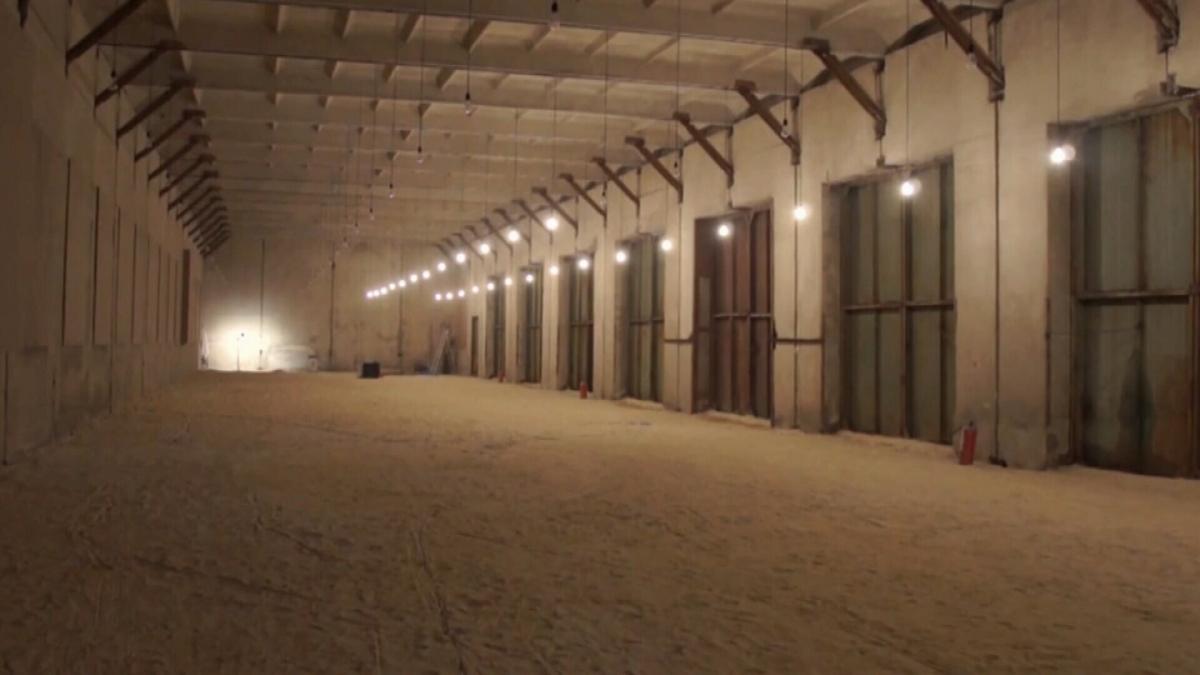
When the man got himself together after this episode, the torturers took him out for what they said would be an execution by a firing squad. "They said 'You're a spy, we have evidence, so in the name of the Donetsk People's Republic you will be shot…' It was really scary. 'Here's a wall, here's a pallet, get up there and pray.' I was mortified, it was horrible experience," Oleh Chulka says.
And there were also "torture field trips", including with personal participation of the so-called "DPR leader" Oleksandr Zakharchenko.
"They used to bring me personally to Zakharchenko," says Maksym Teorenter. "He tells me, 'You sided with the Nazis.' And I say, 'I'm Ukrainian. You and I – we're both Ukrainians. And I saw what you did in Lyman, in Slovyansk.' After that, he ordered his men to do me a 'dolphin'. This is when they put you on the floor, four people hold your hands and feet down, throw a cloth over your face and start pouring water on it… Next to us was a swimming pool. So they first poured water on my face and then went on drowning me in the pool. And as they were pulling me from under the water, they would start shooting by my head. This is where I got my contusion. "
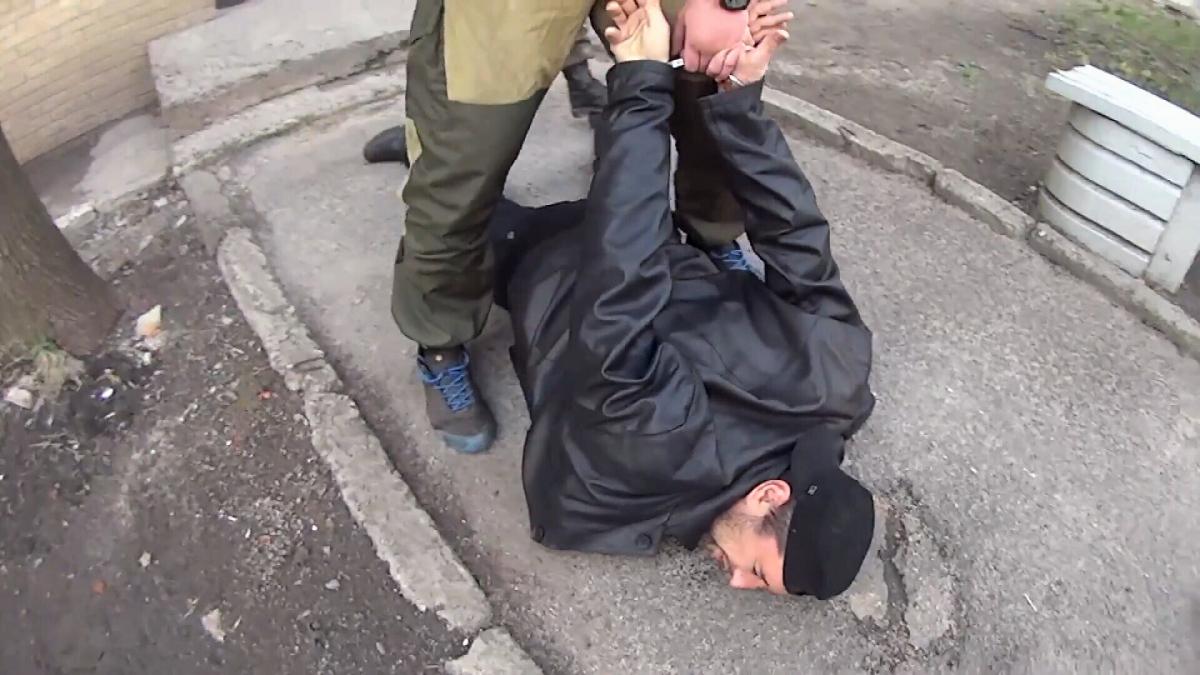
Olena Lazareva is an ER medic. When the war began, she remained in the occupied Donetsk, working in Kalinin's hospital, helping Ukrainiann military. It's for this job that she was thrown into the Isolation. She says female prisoners were beaten and intimidated there.
"They said: 'We'll take you to our guys at the base, they'll have some fun with you first and then bury somewhere in the forest where your family will never find you'," the woman recalls.
The invaders tried not to bring pro-Ukrainian women to the torture chamber. But women would often have to clean the room after someone else was tortured there. This, Olena recalls, wasn't scary at all, unlike hearing others scream during torture.
"I had a feeling that a human being can scream this way only when they're being skinned alive. Those screams were just so terrifying… as if it wasn't a human scream. And sometimes, we even tried to close our ears not to hear it. Because it could take a while – it could take hours. Horrible! When we cleaned the next room, we saw plenty of Orthodox icons standing there. So these people seem to believe in God, but at the same time they do such terrible things…" says Olena Lazareva.
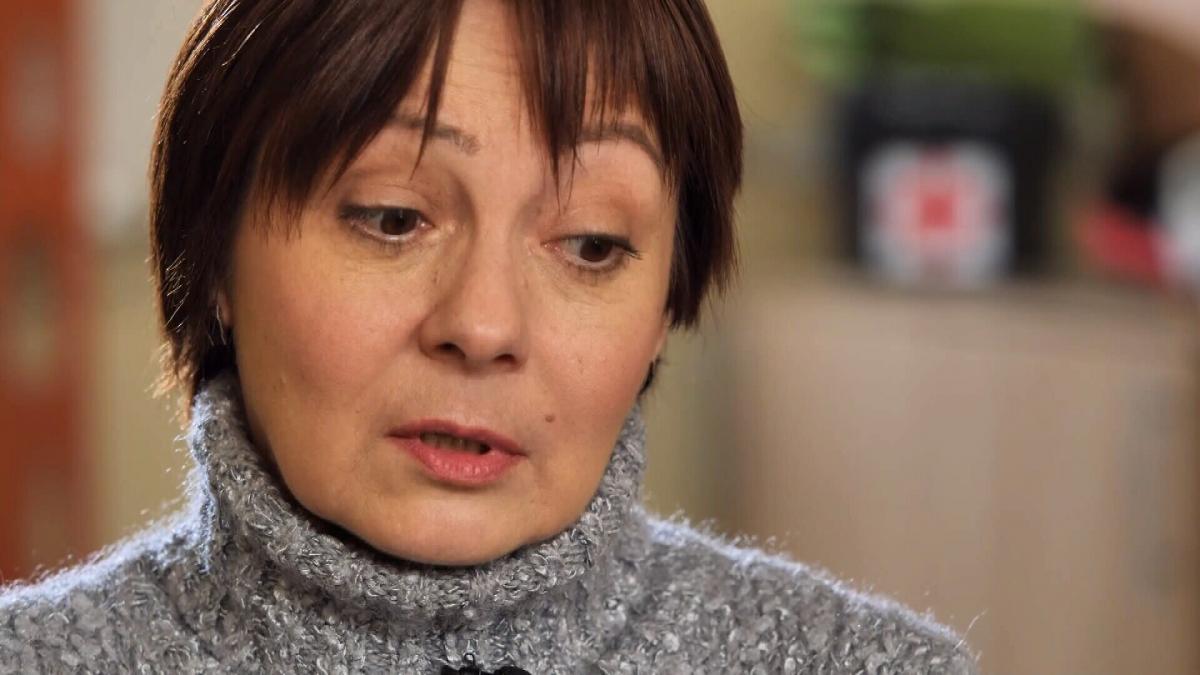
Isolation – meaning, the art platform project whose Donetsk venue was seized by Russian proxies who turned it into a concentration camp – moved to Kyiv. The capital's Isolation is indeed a bright place in the district of Podil, where, as in the pre-war period in Donetsk, exhibits and art performances are set up regularly.
At the same time, former prisoners of today's version of Donetsk Isolation reflexively shudder when they hear this name. They are still struggling to start a new life, and their major wish is to have executioners prosecuted.
But who are these people that are able to inflict such pain on other human beings and take their lives? You will not find their photos on social networks. But they have names. And families. For example, the man known by call-sign "Lenin" is Vasily Yevdokimov. He is believed to be the man behind founding the Isolation prison. There is also "Mongol", Stanislav Slepnev. All prisoners remember him well. Another complicit figure is Yuriy Kryvonos aka "Yura the Tanker". He either keeps heading the Isolation administration or used to, until recently (it's exactly unknown). But all these people are not the ones who terrify former prisoners the most… There is another man. He referred to himself as "Hades". His other monicker, more widely known, is Palych. His real name is Denys Pavlovich Kulikovsky, 36. When his name is mentioned, ex-prisoners shudder and say they really wish Ukrainian security forces finally caught him. Every one of them seems to have already come up with the punishment they want to be inflicted upon him. Some people want Palych to go through the same kind of tortures, while others believe that the man should be executed as an exemption to the national ban on capital punishment.
Former prisoners recognized on photos, besides Palych, his parents, classmates, and wife. It's interesting how and when this man has turned into an executioner. TSN. Tyzhden reporters drove to a small village of Kurakhovo near the Donbas frontline to find out.
The principal of the local school remembers Denis Kulikovsky as a student, saying the boy did quite well at school. His classmate Julia also says that Denys used to be a sensitive and nice guy. And when she learned about her friend's further path, she got upset: "I would like to hear something good about my class. Moreover, there are not so many classmates left alive – many have passed."
Oksana Kulykovska, Palych's older sister, works at a local market. She gives a long stare at his photo on our phone journalists are showing her and tries to convince them she doesn't know the man.
But most shocking is the father's reaction. As soon as he heard his son's name, his first question was "Did he rob or kill someone? Or what?"
"Why would you say so?" journalists ask.
"And what do you think? You wouldn't be looking for him without a reason, right?" he replies.
This conversation was recorded back in spring. The father said that before the war he got into a fight with his son because the son would drink too much. He said the son had no wife or children, and that he wasn't aware of his whereabouts. But now, in the fall, the team decided to once again see the family. They met the reporters a little differently. The family of the Isolation's executioner still persuaded journalists they didn't know where the man was. Palych's father began to justify his son's actions: "What's the difference now between those who come here? Tens of thousands have been killed. I mean, our Ukrainian men fighting here, killing… Who are they? Who are they killing?"
TSN.Tyzhden's conversation over the phone with Palych's ex-wife was also pretty weird. She reacts as if her answers were well prepared: "No, we haven't talked for the last six months, probably." "Do you know where he works?" "As far as I know, the last time I heard of him he was in Russia." "And what is he doing there?" "I don't have that information. I know he had a job in a place called Isolation. Honestly, I'm unaware of any details." "But did you come and see what Isolation is?" "I didn't visit him at work. I don't know what it's all about. "Didn't you know people were tortured there?" "No, I didn't know that people were tortured there." "So you don't know it's a prison, you say?" "I've distanced myself from it all. I live a pretty quiet life."
Instead, the woman wonders if anyone in Ukraine will have questions to ask her if she decides to leave the occupied Donbas: "If I come, I will also face questions? On whether I took part in anything? That I covered someone up, some criminals? I was very confused when I learned that some prisoners saw me there and testified."
According to his ex-wife, Palych had fled from the so-called "DPR" back in 2019. And that he's allegedly in Russia now. However, is this true? The thing is that as soon as TSN.Tyzhden started searching for him, the man who referred to himself as a security agency operative reached out to their correspondent. First, during the meetings, he repeatedly demanded that journalists not air Palych's photo on TV. At first, he claimed he was preparing a special operation to nab the suspect. Then – that Palych was now allegedly working for Ukraine. And then came threats…
That is why one of such meetings was video-recorded. However, journalists blurred the man's face and doctored his voice.
"You claim that you know where Palych is and that he is in Kyiv? - Yes… There are a lot of nuances… Palych isn't free."
The executioner may not be at large, that is, he's now a recruited human asset. And all that could be in order for him to earn freedom. Major General Viktor Yahun, former SBU deputy head, doesn't rule this option out.
"Maybe they took him and hid him somewhere. And why did they do that? Perhaps he is being exploited somehow. Anything could be going on. Maybe he is telling them something and maybe he is really helping Ukraine this way. But is such assistance worth it?!" he asks.
Really, is such aid worth it?! And are Ukrainian law enforcers working to locate the torturer? To the journalists' official inquiry, the SBU said they were working to this end. The Prosecutor General's Office also wrote that the criminal cases had been launched, while stopping short of disclosing their targets citing investigation secrecy. Secretary of the National Security and Defense Council Oleksiy Danilov explained over the phone that the Ukrainian special services were aware of all executioners and militants out there, but will not disclose any information just yet.
"I can assure you that sooner or later, all those who've committed these crimes in the occupied Donetsk and Luhansk regions will be punished. No scoundrel will escape the punishment of the Ukrainian people," said Oleksiy Danilov.
One thing is certain though – most of those who committed crimes against the Ukrainian people in the occupied territories, now, more than six years into the outbreak of war, have not been convicted in Ukraine – even in absentia. Moreover, according to criminologist Hanna Malyar, even if they are caught, they will not be tried for war crimes.
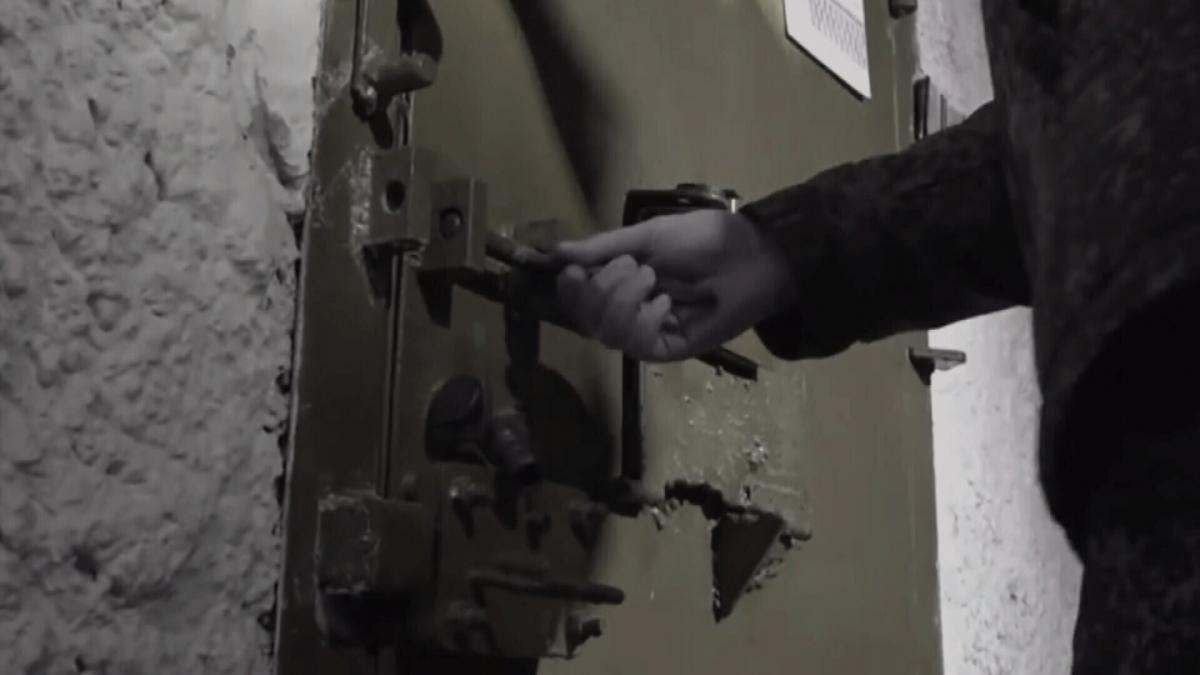
"Unfortunately, in recent years, our legislation has not been prepared for this. Today, our criminal code is not ready for war crime sentences. And it makes a huge difference whether we bring this executioner to responsibility for ordinary torture or we bring him to justice for war crimes, crimes against humanity. Then we would prove everyone and ourselves that there is a war ongoing on our territory, not regular crimes," she said.
The question remains open of when Ukraine will eventually prepare for this. Meanwhile, the men who spoke with TSN.Tyzhden say they'll never forget Isolation, but at the same time, they're trying to live anew. Olena Lazareva is already working at a Kyiv hospital. Oleh Suherey is undergoing treatment and doing repairs in his home. Maksym Teorenter is training young people and trying to do business. Oleh Chulha is busy raising his grandchildren. And Denys Koval had new teeth made for free in one of the local dentist's offices. Also, he met the love of his life. Tetiana is also a former prisoner. She has moved from the occupied territory of Luhansk region, bringing along her daughter and granddaughter. Denis and she are going to get married and buy a house where their big family will live.
At the same time, all of the ex-prisoners who have gone through the horrors of Isolation, hope that justice exists and that justice will prevail.
Mariana Bukhan

